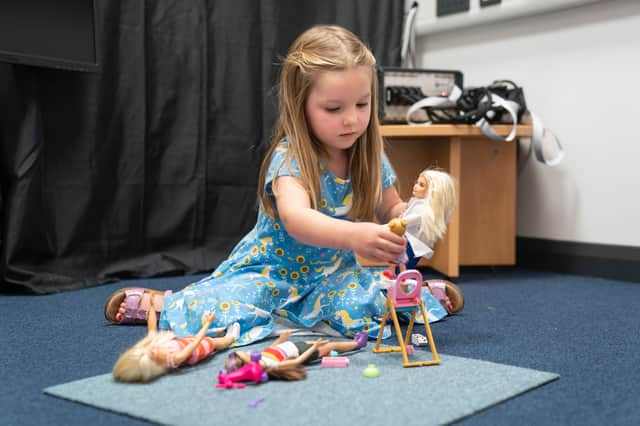Playing with dolls can aid children with their social development


The research, from Cardiff University, found children exhibiting higher levels of autism traits showed increased brain activity in a key region associated with social processing when engaging in conversations with individuals during doll play.
And the new findings suggested the broader social engagement with others while engaging in doll play was a unique pathway to social development for these children.
Advertisement
Hide AdAdvertisement
Hide AdThis was in contrast to what was observed in neurotypical children, who were more likely to discuss the dolls' thoughts and emotions.
However, researchers said that despite this difference, it showed that both groups may be able to benefit from doll play by using it as a tool for practising social scenarios and developing social skills, such as empathy.
Aiding development
The findings are the latest release from a multi-year study by the Centre for Human Developmental Science at the university’s School of Psychology.
Previous years have focused on neurotypical children and found wide-ranging social and developmental benefits of playing with dolls.
Advertisement
Hide AdAdvertisement
Hide AdNow, in its third year, the research team has replicated those results with a more diverse range of participants, including children aged between four and eight displaying both high and low levels of traits associated with autism.
Lead researcher Dr Sarah Gerson said: “Our study shows that doll play can encourage social processing in children, regardless of their neurodevelopmental profile.